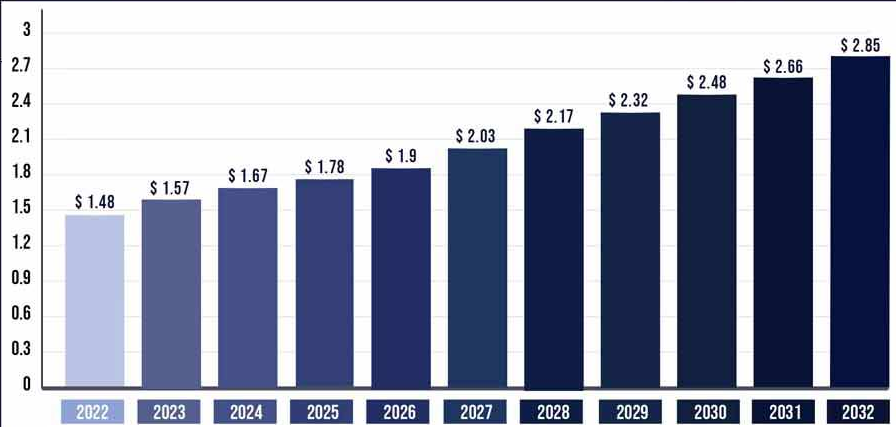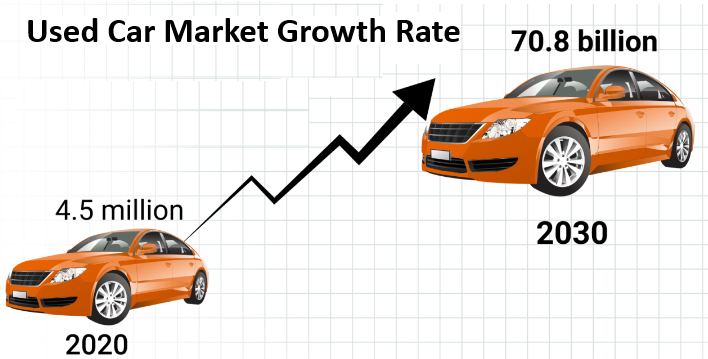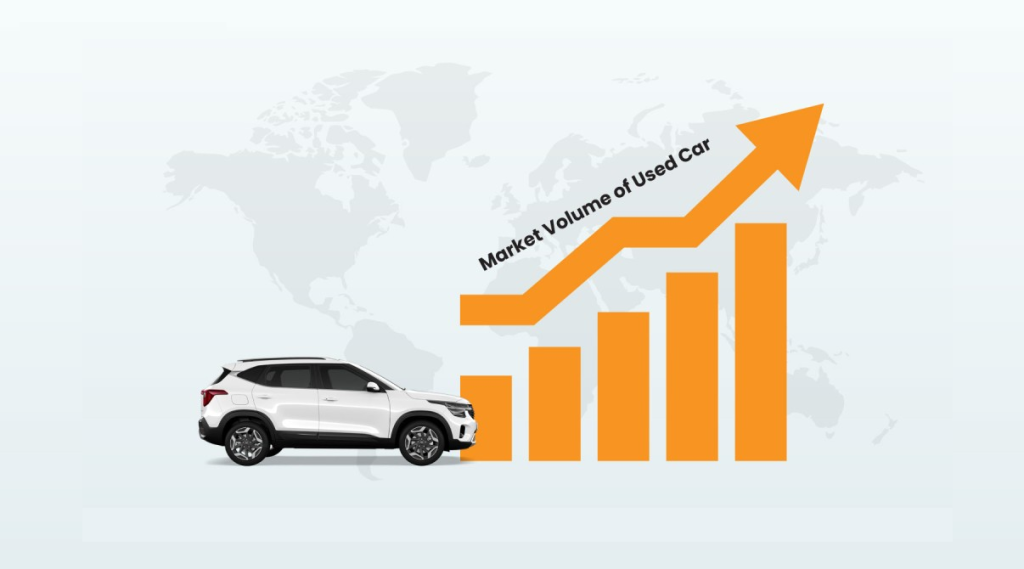The engine of the automotive industry may sputter with new car production hiccups, but the used car market is roaring into the fast lane, projected to surpass $120 billion by 2027. This $94.9 billion behemoth in just the US alone isn’t just thriving – it’s undergoing a metamorphosis, fueled by shifting trends, tech-savvy buyers, and a growing eco-conscious consumer base. Buckle up, because we’re about to take a deep dive into this dynamic used car sector, exploring its major players, the growth drivers, and the exciting future outlook.

Shifting Gears: The Landscape of the Used Car Market
The used car market landscape is a bustling highway, populated by diverse competitors:
Franchised Dealership Titans: These industry giants, like Toyota and Ford, hold a commanding 75% market share, offering brand recognition, diverse inventory, and established financing options. They’re the undisputed rulers of the road, a testament to their long-standing reputation and customer trust.
Independent Garages, the Underdogs: Don’t underestimate the scrappy independents! With a 25% market share, these smaller dealerships offer a personalized touch, often competitive pricing, and sometimes niche vehicles that the big boys miss. They’re the alleyway gems, known for their flexibility and hidden treasures.
Online Accelerators: CarMax and the Digital Revolution: Forget dusty brochures and haggling – online platforms like CarMax and Autotrader have transformed the market. By providing convenience, transparency, and access to a vast used car market portfolio, they’ve shifted the buying experience into the digital fast lane.
Fueling the Boom: What’s Driving the Used Car Market Growth Rate?

Several factors are propelling the used car market future outlook like a well-tuned engine:
New Car Price Surge: While new cars become increasingly expensive, the appeal of the affordable used car option grows ever stronger. Rising new car prices are like a headwind for new car sales, but a tailwind for the used car market.
Environmental Consciousness: As sustainability becomes a priority, the lower carbon footprint of used cars makes them an attractive choice for eco-conscious consumers. It’s not just about saving money; it’s about saving the planet, one pre-owned vehicle at a time.
Convenience and Technology: Online platforms and improved financing options like instant pre-approval have streamlined the used car market experience. Purchasing a used car is no longer a marathon, but a quick, efficient pit stop.
Shifting Demographics: Millennials and Gen Z, who prioritize experiences over possessions, are increasingly opting for used cars. They’re the new drivers on the road, valuing practicality and affordability over brand-new shine.
Challenges on the Road: Navigating the Bumpy Bits of the Used Car Market

Despite the used car market growth, some bumps lie ahead:
Supply Chain Disruptions: New car shortages can ripple through, impacting used car market revenue and inventory. A hiccup in new car production can throw a wrench into the well-oiled gears of the used car market.
Economic Uncertainty: A potential economic downturn could affect consumer spending and used car market growth. A bumpy economic road could slow down the market’s rapid acceleration.
Cybersecurity Threats: Online platforms must prioritize robust security to protect sensitive customer data. A cybersecurity breach can be a major crash in the digital ecosystem of the used car market.
Charting the Course: How to Thrive in the Thriving Used Car Market
To navigate these challenges and seize the opportunities, major players and newcomers alike need to:
Embrace Digitalization: Invest in user-friendly online platforms and mobile apps to attract tech-savvy customers. The future of the used car market is paved with digital roads.
Focus on Customer Experience: Provide excellent service, transparent pricing, and personalized options to build loyalty. Make every customer feel like a champion, not just another buyer.
Diversify Offerings: Cater to niche segments like electric vehicles, luxury cars, and classic models to open new used car market revenue streams. Don’t just stick to the same old makes and models; explore new avenues.
Prioritize Sustainability: Implement eco-friendly practices and promote fuel-efficient vehicles to resonate with environmentally conscious consumers. Go green to attract the green-minded generation.




